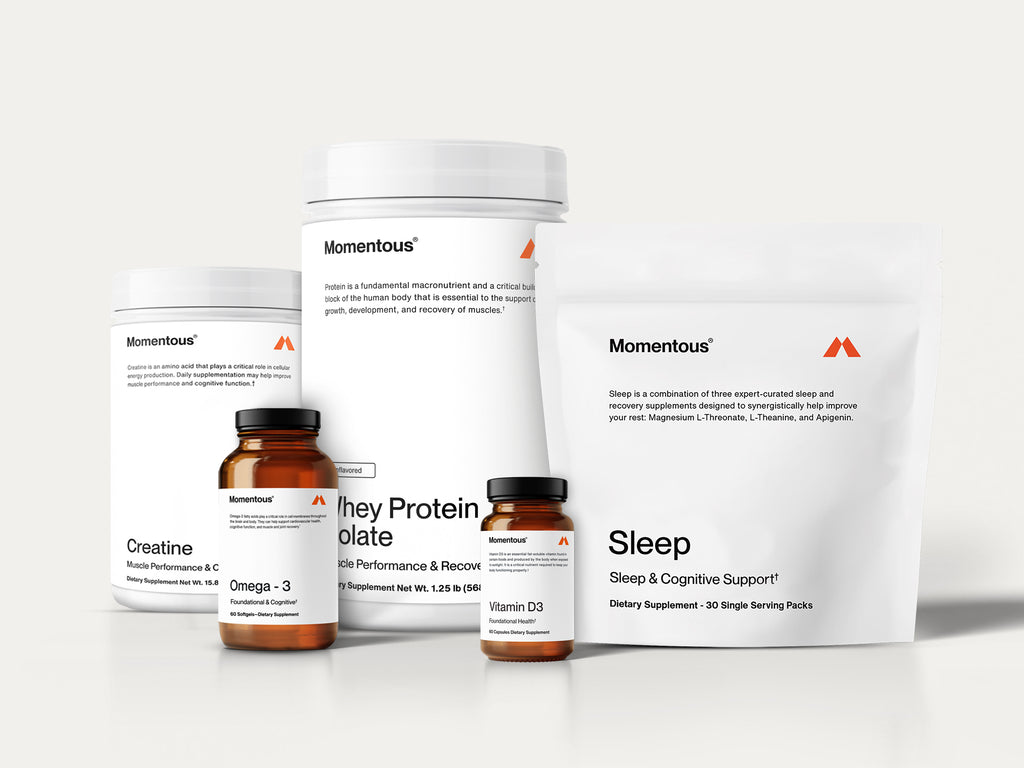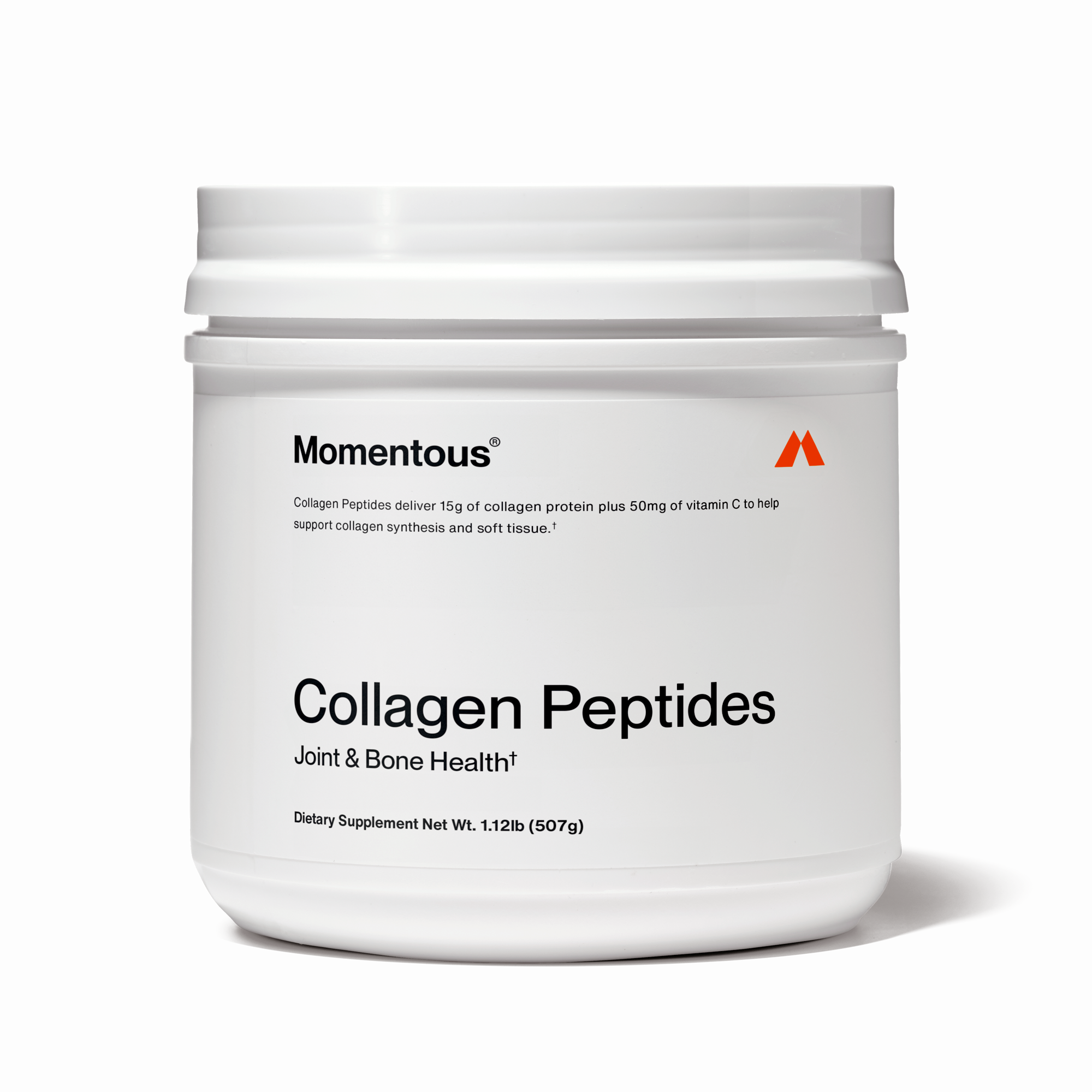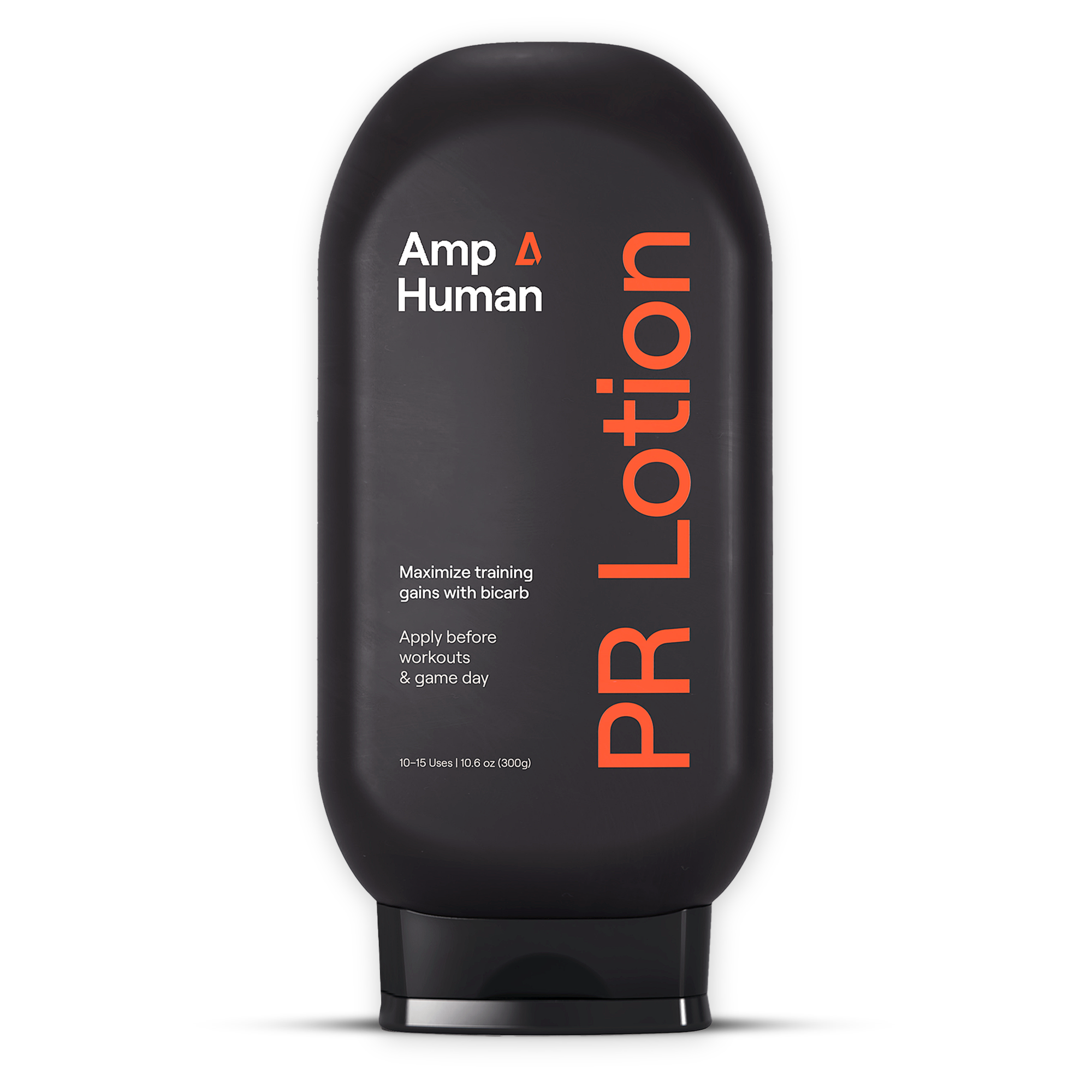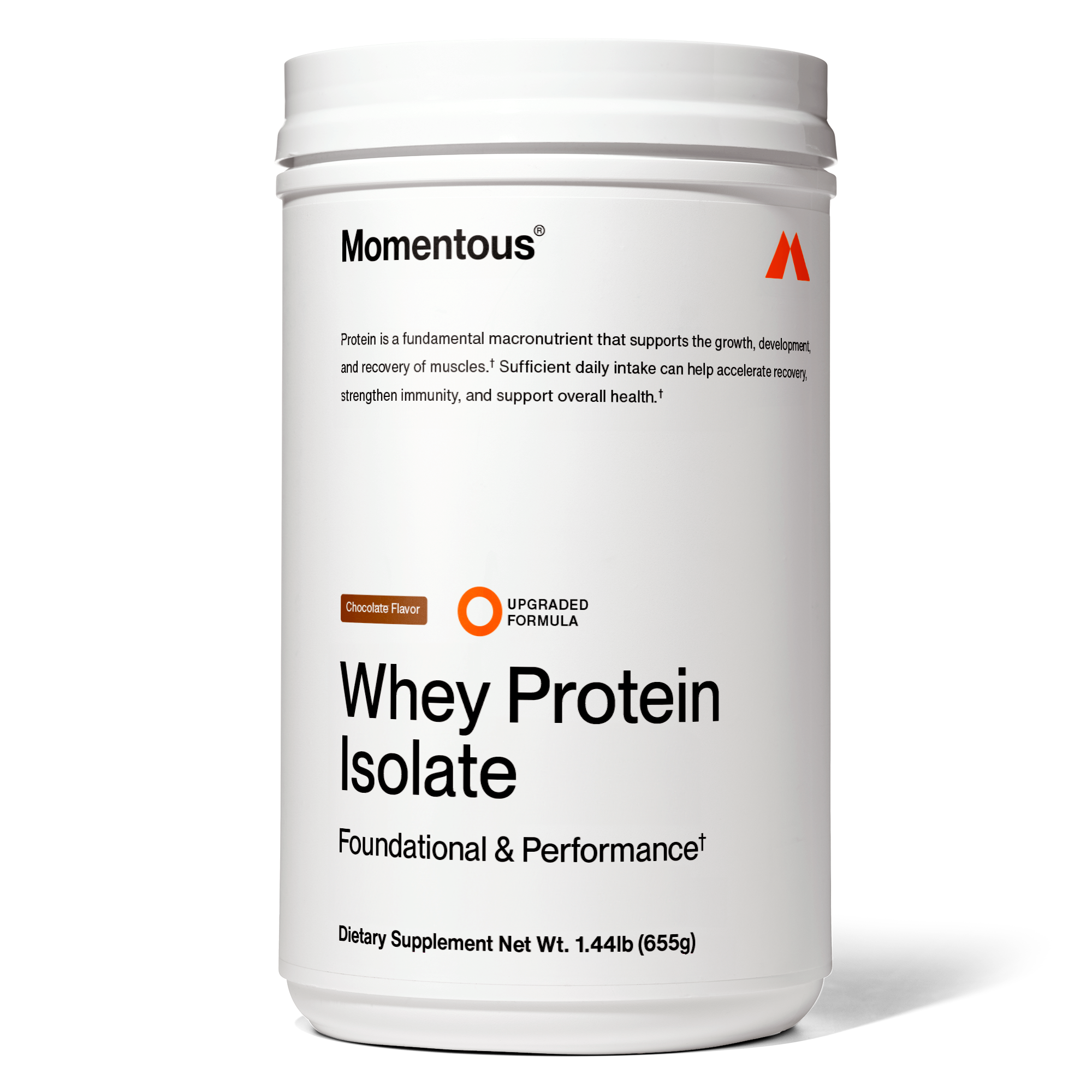Joint Health, Bone Health
Joint Health, Bone Health
Athletic Performance, Muscle Recovery
20g of grass-fed whey protein isolate per serving for performance + recovery
By Kyle Gonzalez, Head of Content at Momentous
Movement is life; without movement, life is unthinkable.
-Moshe Feldenkrais
Movement is at the core of everything you do. Almost every system in the human body benefits from proper and habitual movement. Unfortunately, according to the CDC, only one in four adults and one in five high school students meet activity requirements. Worse yet, around 25% of Americans are entirely inactive. This inactivity contributes to one in ten premature deaths in the US. It increases the risk of heart disease, diabetes, hypertension, and cancer, among many other ailments. Inadequate physical activity levels are associated with $117 billion in annual healthcare costs (1).
Getting into the habit of moving more can do wonders for your overall health, wellness, and even how long you live. After all, humans are built to move. By adding a mix of fun and varied activities to your daily routine, you'll tap into your body's natural abilities, keep health issues at bay, and enjoy life more.
Health Benefits of Movement
Think of movement as a powerful medicine that significantly reduces your risk of chronic disease, improves cognitive function, and helps you build strong muscles and bones. Best of all, you can write your own prescription.
The incredible benefits of daily activity are hard to beat, making it one of the most affordable and effective ways to enhance your health and well-being. When you don't get enough daily activity, a cascade of negative effects ripples through your brain and body. You burn fewer calories, losing muscle mass, strength, and stamina. Your bones may weaken due to a decline in mineral content. Your immune system and metabolism suffer disruptions, and your hormonal balance gets thrown off. Leading a sedentary lifestyle can rapidly accelerate your path toward an early demise.
The good news is a healthy dose of activity takes nothing but having a willing body. Engaging in any physical activity that gets your body moving is the perfect remedy for a sedentary lifestyle. Just one thousand extra steps a day can decrease mortality risk by up to 28% (2). While most health organizations recommend at least 150 minutes of moderate exercise a week, aiming higher is best. People who exercise 300 to 600 minutes a week have a 26% to 31% lower all-cause mortality risk (3).
Consider movement and exercise as essential to life as sleeping and eating. Embracing an active lifestyle improves your overall well-being and offers countless benefits. Here are even more reasons to build a movement habit you can stick to:
Major and minor diseases and health conditions
Choose any disease or health concern, and chances are high that regular exercise will aid in preventing or managing it. The enhanced insulin sensitivity, blood pressure, heart health, lung function, body composition, and cholesterol levels that result from physical activity help combat major illnesses. Avoiding heart disease, hypertension, diabetes, and cancer is a reliable way to enjoy a longer, healthier life.
Mood and Energy
Physical activity has been proven to uplift your mood, helping to alleviate feelings of anxiety, depression, and chronic stress. The augmented blood circulation during exercise and the release of potent brain chemicals can invigorate you and bolster self-esteem. Regular exercise helps fight mental fatigue and mood disorders while building confidence and energy.
Sleep
Whether quality, quantity, or latency, exercise enhances your sleep in many ways. Exercise improves sleep through body temperature changes, energy depletion, relaxation, and other mechanisms. Exercise should be near the top of the list regarding improving your sleep hygiene. If you're still struggling to get enough sleep, check out our Sleep Pack, which can help get you back on track.
Weight and metabolism
Regular exercise increases energy expenditure, which can lead to weight reduction. By simply increasing non-exercise movement throughout the day, you can effectively manage your weight and enhance non-exercise activity thermogenesis (NEAT). Physical activity aids in efficiently converting food into energy while shedding surplus fat. Plus, you continue to burn calories even after you've finished exercising. The formula is simple: move more and burn more calories.
Muscles, joints, and bones
Exercises of all types play a pivotal role in building and maintaining strong muscles, joints, and bones, while supplements like Momentous Collagen Peptides provide added support. Your body is meant to move; when it doesn't, its musculoskeletal system suffers breakdown and dysfunction. Improving movement efficiency and quality is a crucial benefit of regular exercise. Neglecting movement can lead to musculoskeletal breakdown and dysfunction. Regular exercise enhances movement efficiency and quality, helping prevent falls, osteoporosis, and age-related muscle decline—offering notable health and longevity benefits for those willing to put in the effort.
Memory and cognition
Exercise boosts brain health and size and combats cognitive decline, which is nearly twice as common in inactive adults compared to their active counterparts (4). By increasing blood flow to the brain and modulating brain chemicals, physical activity enhances memory, focus, mood, and overall cognition, making it a powerful ally against dementia and aging. Check out supplements like Omega-3 and Momentous Brain Drive for an extra boost to your cognitive health.
Quality and quantity of life
Exercise enhances both health span (disease-free years) and lifespan (years lived). Physical activity invigorates your overall well-being through various physiological, social, emotional, and mental mechanisms. Your ability to carry out daily tasks and do what you want is directly related to how well you move. Exercise can help you find purpose, build community, and thoroughly enjoy life.
Beyond what's already been mentioned, exercise offers an array of other benefits, such as enhanced pain tolerance, hormonal balance, immunity, skin health, sex life, circulation, stamina, productivity, and social well-being. Get moving and experience its transformative impact on your life.
----
(1) CDC. 2022. “How Much Physical Activity Do Adults Need?” CDC. Last reviewed June 2, 2022. https://www.cdc.gov/physicalactivity/basics/adults/index.htm.
(2) Ries, Julia. 2021. “Walking an Extra 1,000 Steps May Increase Your Life Span.” Healthline. May 20, 2021. https://allhealthchoice.com/walking-an-extra-1000-steps-may-increase-your-life-span.
(3) Calvert, Howard. 2022. “New Study Determines the Optimum Amount of Weekly Exercise.” Esquire. August 9, 2022.
(4) Omura, J. D., Brown, D. R., McGuire, L. C., Taylor, C. A., Fulton, J. E., & Carlson, S. A. (2020). Cross-sectional association between physical activity level and subjective cognitive decline among US adults aged ≥45 years, 2015. Preventive Medicine, 141(106279), 106279.















